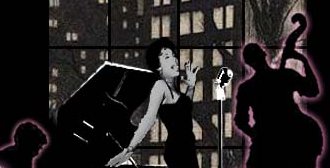Welcome toCafe SongbookInternet Home of the |
 |
 |
| Home || Songs || Songwriters || Performers || Articles and Blogs || Glossary || About Cafe Songbook || Contact/Submit Comment | |
| Search Tips: 1) Click "Find on This Page" button to activate page search box. 2) When searching for a name (e.g. a songwriter), enter last name only. 3) When searching for a song title on the catalog page, omit an initial "The" or "A". 4) more search tips. | |
The Birth of the Blues |
|||
| (Portions of this page have not yet been completed. Thank you for your patience.) | |||
| To search this page only, use your browser's "Find" command: keystroke: Control + F (Windows) or Command + F (Mac). (search tips) | |||
Written: 1926 |
Music by: Ray Henderson |
Words by: B.G. Buddy De Sylva |
Written for: George White's Scandals (revue, 1926) |
| Page Menu | |||
| Main Stage || Record/Video Cabinet || Reading Room || Posted Comments || Credits | |||
On the Main Stage at Cafe Songbook | |
|
Frank Sinatra and Louis Armstrong performing "The Birth of the Blues" A Sinatra / Armstrong duet on Birth of the Blues is More Performances in the Cafe Songbook |
Cafe Songbook Reading Room"The Birth of the Blues" |
||
| About the revue George White's Scandals [1926] and Introduction of "The Birth of the Blues" |
||
|
George White's Scandals taken together constituted a series of revues appearing on Broadway in most years from 1919 through 1939. Grand revues of this type were modeled on The Ziegfeld Follies and many of the stars of the American musical theater of the early and middle Twentieth Century got their start in them. George White's Scandals featured, in various years, Ray Bolger, Ethel Merman, Ann Miller, Helen Morgan, and Eleanor Powell among many others. "The Birth of the Blues" was introduced in the 1926 Scandals by Harry Richman, who sang it as part of the first act finale, a "debate" between the blues and the classics that also included a version of George Gershwin's "Rhapsody in Blue" (with Lyrics, no less), and W. C. Handy's "St. Louis Blues (1914)." The 1926 Scandals was the longest running of the series (June 14, 1926 - June 18, 1927) and introduced one of the great dance numbers of The Roaring Twenties, "The Black Bottom." |
|
| Critics Corner (This section is currently in preparation.) | ||
| Lyrics Lounge (This section is currently in preparation.) | ||
Click here to read the lyrics for "The Birth of the Blues" as sung by Frank Sinatra
The complete, authoritative lyrics for "The Birth of the Blues'" can be found in:
Click here to read Cafe Songbook lyrics policy. |
||
| back to top of page | ||
Visitor CommentsSubmit comments on songs, songwriters, performers, etc.
Feel free to suggest an addition or correction. Please read our Comments Guidelines before making a submission. (Posting of comments is subject to the guidelines. Not all comments will be posted.) |
| To submit a comment, click here. |
Posted Comments on "The Birth of the Blues": No Comments as yet posted |
| back to top of page |
Credits(this page) |
Credits for Videomakers of custom videos used on this page:
Borrowed material (text): The sources of all quoted and paraphrased text are cited. Such content is used under the rules of fair use to further the educational objectives of CafeSongbook.com. CafeSongbook.com makes no claims to rights of any kind in this content or the sources from which it comes.
Borrowed material (images): Images of CD, DVD, book and similar product covers are used courtesy of either Amazon.com
Any other images that appear on CafeSongbook.com pages are either in the public domain or appear through the specific permission of their owners. Such permission will be acknowledged in this space on the page where the image is used.
For further information on Cafe Songbook policies with regard to the above matters, see our "About Cafe Songbook" page (link at top and bottom of every page). |
This section is currently incomplete. The Cafe Songbook |
||
|
Performer/Recording Index
(*indicates accompanying music-video)
|
||
Year Music-Video
Notes: |
||
| back to top of page | ||
Year Music-Video
Notes: |
||
| back to top of page | ||
Year Music-Video
Notes: |
||
| back to top of page | ||
Year
Music-Video: |
||
| back to top of page | ||
Year Music-Video
Notes: |
||
| back to top of page | ||
Year Music-Video
Notes: |
||
| back to top of page | ||
Year Music-Video
Notes: |
||
| back to top of page | ||
Year Music-Video
Notes: |
||
| back to top of page |
| Home || Songs || Songwriters || Performers || Articles and Blogs || Glossary || About Cafe Songbook || Contact/Submit Comment | |
© 2009-2018 by CafeSongbook.com -- All Rights Reserved |
